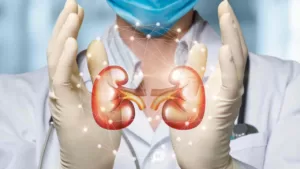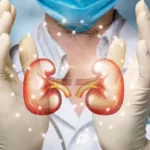The Best Fluffy Pancakes recipe you will fall in love with. Full of tips and tricks to help you make the best pancakes.
Discovering the causes and remedies for alopecia hair loss is a topic of great importance for many individuals who are grappling with this distressing condition. Hair loss, particularly when it occurs unexpectedly, can be a disheartening experience that affects one’s self-esteem and overall well-being. This article aims to shed light on the underlying factors contributing to alopecia hair loss and provide valuable insights into potential remedies.
 Throughout this comprehensive exploration, readers can expect to delve into the intricate web of causes behind alopecia hair loss. From autoimmune disorders to nutritional deficiencies, medication side effects, and hormonal imbalances, we will uncover the diverse range of factors that can trigger hair loss. Moreover, we will guide readers towards effective preventive measures and natural remedies to manage this condition with confidence.
Throughout this comprehensive exploration, readers can expect to delve into the intricate web of causes behind alopecia hair loss. From autoimmune disorders to nutritional deficiencies, medication side effects, and hormonal imbalances, we will uncover the diverse range of factors that can trigger hair loss. Moreover, we will guide readers towards effective preventive measures and natural remedies to manage this condition with confidence.
The daunting causes behind alopecia hair loss
Alopecia hair loss can be a distressing condition, leaving individuals grappling with feelings of self-consciousness and frustration. To truly understand this condition, it is crucial to delve into the underlying causes that contribute to its onset. One of the primary culprits is an autoimmune disorder known as alopecia areata. This occurs when the immune system mistakenly attacks the hair follicles, leading to hair loss in patches or even complete baldness. The exact triggers for this autoimmune response remain uncertain, but it is believed to be a combination of genetic predisposition and certain environmental factors.
 Nutritional deficiencies can also play a significant role in causing alopecia hair loss. When the body lacks essential nutrients such as iron, zinc, vitamins A and D, and biotin, it can negatively impact the health of hair follicles and disrupt their normal growth cycle. Poor dietary choices or underlying conditions that hinder proper nutrient absorption may leave individuals susceptible to experiencing excessive hair shedding or thinning.
Nutritional deficiencies can also play a significant role in causing alopecia hair loss. When the body lacks essential nutrients such as iron, zinc, vitamins A and D, and biotin, it can negatively impact the health of hair follicles and disrupt their normal growth cycle. Poor dietary choices or underlying conditions that hinder proper nutrient absorption may leave individuals susceptible to experiencing excessive hair shedding or thinning.
Another factor contributing to alopecia hair loss is medication side effects. Certain medications used in cancer treatments, blood pressure regulation, antidepressants, and hormone therapy have been known to cause temporary or permanent hair loss as a side effect. While these medications may be essential for overall well-being and health management, understanding their potential impact on one’s hair can help individuals make informed decisions about their treatment plans.
The autoimmune disorder link to alopecia hair loss
Did you know that alopecia hair loss can often be attributed to an underlying autoimmune disorder? Autoimmune diseases occur when the body’s immune system mistakenly attacks its own healthy cells, including those responsible for hair growth. In the case of alopecia areata, a specific type of autoimmune disorder, the immune system targets the hair follicles, causing them to shrink and ultimately resulting in patchy or complete hair loss.
The precise cause of this autoimmune response remains elusive, but researchers believe that both genetic and environmental factors play a role. Some studies suggest that individuals with a family history of autoimmune disorders are more susceptible to developing alopecia areata. Additionally, certain triggers such as viral infections or extreme stress have been known to activate or worsen this condition. Understanding these intricate connections can help shed light on potential prevention strategies and encourage hope for individuals affected by alopecia.
While an autoimmune disorder may seem daunting, it is important to note that many individuals with alopecia areata experience spontaneous regrowth of their hair over time. The unpredictable nature of the condition means that treatments can vary in effectiveness from person to person. However, advancements in medical research have led to promising therapies such as corticosteroid injections, topical immunotherapy, and oral medications that modulate the immune system’s response.
Nutritional deficiencies and their role in hair loss
When it comes to understanding alopecia hair loss, it is essential to delve into the impact of nutritional deficiencies on our precious locks. Our hair thrives on a balanced diet containing vital nutrients such as vitamins, minerals, and proteins. However, poor dietary choices or inadequate absorption of nutrients can lead to deficiencies that manifest as hair loss.
 One significant nutrient deficiency associated with alopecia is iron deficiency anemia (IDA). Iron plays a crucial role in delivering oxygen to the hair follicles and promoting healthy cell growth. When the body lacks sufficient iron, it can interrupt this process, leading to weakened follicles and subsequent shedding of hair.
One significant nutrient deficiency associated with alopecia is iron deficiency anemia (IDA). Iron plays a crucial role in delivering oxygen to the hair follicles and promoting healthy cell growth. When the body lacks sufficient iron, it can interrupt this process, leading to weakened follicles and subsequent shedding of hair.
Additionally, inadequate intake or low levels of other essential vitamins like vitamin D, vitamin E, B vitamins (especially biotin), and minerals such as zinc can also contribute to hair loss. These nutrients are involved in maintaining a healthy scalp environment, stimulating hair growth cycles, and preventing excessive shedding. Therefore, incorporating a well-rounded diet rich in fruits, vegetables, lean proteins, whole grains, and healthy fats can optimize nutrient intake for vibrant tresses.
Unveiling the Impact of Side Effects from Medication
Medication is often considered a beacon of hope, a remedy to alleviate various health conditions. However, what many fail to recognize is that certain medications can have unintended consequences, including hair loss. Understanding the impact of medication-related side effects on alopecia will enable individuals to make informed decisions about their treatment options.
Frequently prescribed medications, such as antidepressants and blood thinners, may disrupt the hair growth cycle and result in hair loss. The exact mechanisms behind these side effects are complex and multifaceted. For example, some medications may interfere with the functioning of hair follicles or alter hormone levels in the body, leading to excessive shedding or thinning of hair.
Moreover, it is essential to note that not all individuals will experience medication-induced hair loss. Factors such as genetic predisposition, dosage, duration of treatment, and overall health can influence whether an individual will be affected. Consulting with a healthcare professional is crucial in understanding potential side effects and exploring alternative treatment options that minimize the risk of alopecia.
The role of hormonal imbalance in alopecia hair loss
Hormones play a crucial role in maintaining the delicate balance of our bodily functions, including the growth and health of our hair. When this balance is disrupted, it can contribute to the development of alopecia hair loss. Hormonal imbalances can stem from various factors, such as stress, pregnancy, menopause, or underlying medical conditions.
One common hormonal condition associated with hair loss is known as androgenetic alopecia. In this condition, a specific hormone called dihydrotestosterone (DHT) accumulates in the scalp follicles, causing them to miniaturize and eventually stop producing healthy hair. This type of alopecia is commonly seen in both men and women.
Alopecia areata, another form of hair loss related to hormonal imbalance, occurs when the immune system mistakenly attacks the hair follicles. This autoimmune response disrupts normal hormonal regulation and leads to patchy or complete baldness in certain areas of the scalp. Identifying and addressing hormonal imbalances through proper medical evaluation and treatment can help restore hair growth and prevent further loss.
Discovering Effective Ways to Prevent Alopecia Hair Loss
Alopecia hair loss can be a distressing experience for both men and women, impacting self-esteem and overall well-being. Fortunately, there are various preventive measures that can potentially reduce the risk or severity of alopecia hair loss. By incorporating these practices into your daily routine, you may be able to maintain a healthy scalp and minimize hair thinning.
1. Nourish Your Body with a Balanced Diet
The significance of proper nutrition cannot be emphasized enough when it comes to preventing alopecia hair loss. A well-balanced diet rich in essential vitamins, minerals, and proteins is vital for promoting healthy hair growth. Include foods such as leafy greens, eggs, fish, nuts, and whole grains in your meals to nourish your body from within.
 Supplements like biotin and iron can also play a crucial role in maintaining strong and voluminous hair. Consult with a healthcare professional or nutritionist to determine if any specific dietary supplements would benefit you based on your individual needs.
Supplements like biotin and iron can also play a crucial role in maintaining strong and voluminous hair. Consult with a healthcare professional or nutritionist to determine if any specific dietary supplements would benefit you based on your individual needs.
2. Adopt Gentle Hair Care Practices
Hair care routines often involve vigorous brushing, heated styling tools, and harsh chemical treatments that can contribute to hair damage and breakage. To prevent alopecia hair loss caused by excessive strain on the follicles:
- Use wide-toothed combs or brushes with soft bristles to avoid unnecessary tension on the strands.
- Avoid tight hairstyles such as ponytails or braids that pull on the scalp.
- Minimize the use of heat styling tools like straighteners or curlers; opt for heat-free alternatives whenever possible.
- Choose gentle shampoos and conditioners specifically formulated for your hair type, avoiding those containing harsh chemicals or sulfates.
- Allow your hair to air dry whenever feasible instead of subjecting it to excessive heat from blow dryers.
3. Manage Stress and Prioritize Self-Care
The impact of stress on our overall health cannot be overlooked, including its potential contribution to alopecia hair loss. High-stress levels may disrupt the normal growth cycle of hair follicles, resulting in increased shedding and thinning.
 To prevent stress-induced hair loss:
To prevent stress-induced hair loss:
- Incorporate stress management techniques into your daily routine such as meditation, yoga, or deep breathing exercises.
- Engage in regular physical exercise to release endorphins and reduce tension.
- Evaluate your daily commitments and seek ways to reduce unnecessary stressors in your life.
- Practice self-care by indulging in activities that bring joy and relaxation, such as hobbies, spending time with loved ones, or enjoying nature.
Remember that prevention is key when it comes to managing alopecia hair loss. By nurturing your body with proper nutrition, adopting gentle hair care practices, and prioritizing self-care to manage stress effectively, you can take proactive steps towards maintaining healthy and luscious locks for years to come.
Embracing natural remedies for managing alopecia hair loss
Living with alopecia hair loss can be a challenging experience, but there is hope in embracing natural remedies that can aid in managing this condition. While these remedies may not guarantee a complete reversal of hair loss, they can potentially slow down the progression and promote healthy regrowth.
The Power of Essential Oils
One effective natural remedy for managing alopecia hair loss is the use of essential oils. Certain oils such as lavender, rosemary, and cedarwood have been found to stimulate hair follicles and improve blood circulation to the scalp. By massaging these oils into the scalp regularly, you can potentially promote new hair growth and strengthen existing strands.
In addition to their stimulating properties, essential oils also possess antimicrobial and anti-inflammatory qualities that can help soothe the scalp and reduce any underlying inflammation that may be contributing to hair loss.
The Magic of Herbal Supplements
Another avenue worth exploring when it comes to natural remedies for alopecia hair loss is herbal supplements. Several herbs have shown promise in aiding hair regrowth by addressing underlying causes such as hormonal imbalances or nutritional deficiencies.
Saw palmetto, for example, has gained attention for its ability to block an enzyme known to convert testosterone into dihydrotestosterone (DHT), which is strongly linked to pattern baldness in both men and women. Similarly, stinging nettle root extract has been found to inhibit the production of DHT while promoting healthier hair growth.
A Nutrient-Rich Diet
To support optimal hair health and combat alopecia-related deficiencies, it’s crucial to adopt a nutrient-rich diet. Including foods rich in vitamins A, C, E, biotin (B7), iron, zinc, and omega-3 fatty acids can aid in nourishing the hair follicles and promoting their growth.
 Opt for leafy greens, citrus fruits, nuts, seeds, fish, lean meats, and legumes as part of your daily dietary intake. Additionally, supplementing with a high-quality multivitamin specifically formulated for hair health can help bridge any nutritional gaps that may exist.
Opt for leafy greens, citrus fruits, nuts, seeds, fish, lean meats, and legumes as part of your daily dietary intake. Additionally, supplementing with a high-quality multivitamin specifically formulated for hair health can help bridge any nutritional gaps that may exist.
Remember that managing alopecia hair loss naturally requires consistency and patience. While these remedies offer potential benefits, results may vary from person to person. It’s always advisable to consult with a healthcare professional before incorporating any new supplements or making significant changes to your diet.
Conclusion
In conclusion, understanding the causes and remedies for alopecia hair loss is crucial in navigating this challenging condition. While the journey to regaining a full head of hair may seem daunting, it is important to remember that you are not alone. With advancements in medical research and the availability of effective treatments, there is hope for managing and even reversing hair loss caused by alopecia. Embracing a holistic approach that combines medical interventions, lifestyle changes, and natural remedies can empower individuals to take control of their hair health. By staying informed, seeking professional guidance, and maintaining a positive attitude, one can embark on a path towards regaining confidence and embracing a vibrant mane once again.








